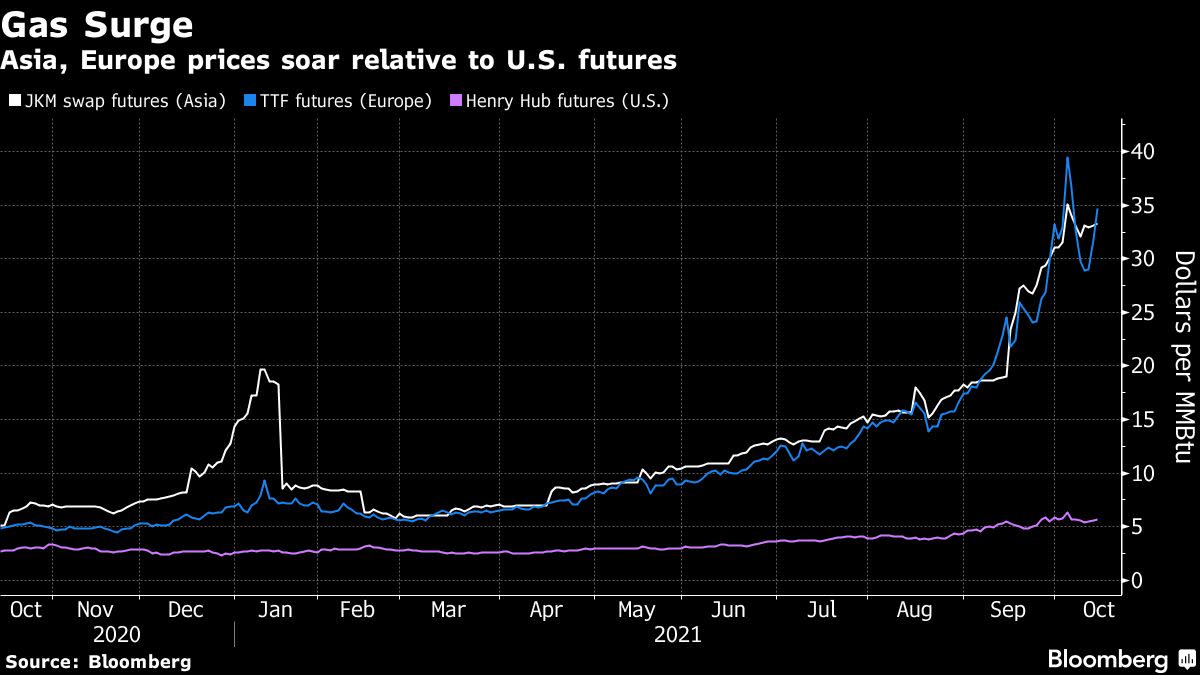Gas CEO Says ‘Unleash American Shale’ to End Energy Crisis

(Bloomberg) — The largest U.S. natural gas driller is using the global energy crisis to renew his call for more investment in domestic infrastructure such as pipelines, which he says will enable increased exports and ease shortages.
Most Read from Bloomberg
U.S. gas drillers could increase supplies by about 20% if not for pipeline and export constraints, EQT Corp. CEO Toby Rice said in an interview Thursday.
Gas fields far from major population centers and export hubs can’t fully open the taps because of a dearth of pipe capacity and too few export facilities, he said. More of such infrastructure would make more fuel available both domestically and abroad, he said — something gas-starved economies in Asia and Europe sorely need with winter approaching.
A new bonanza in U.S. gas drilling also would help accelerate the phasing out of dirtier energy sources, primarily coal, Rice said.
Frustrated pipeline projects have been the Achilles heel of U.S. shale gas as environmental groups, regulators and landowners successfully derailed installations intended to deliver more of the fuel to markets and home and overseas.
“The solution is very simple: unleash American shale,” Rice said. “What we do need is access to more pipeline infrastructure and more LNG facilities.”
A series of proposed pipelines aimed at moving gas from reserve-rich Appalachia have been scrapped over the past couple of years. Last month, PennEast Pipeline Co., a joint venture of five companies including Southern Co. and Enbridge Inc., halted development on a proposed 116-mile (187-kilometer) conduit after failing to receive permits. Separately, completion of the 303-mile Mountain Valley Pipeline has been pushed into next year amid ballooning costs.
Prices for the heating and power generation fuel are skyrocketing in Europe, which is competing fiercely with Asia for cargoes of liquefied natural gas. Even in the U.S., where inventories are more abundant, the commodity has more than doubled this year. Meanwhile, gas for January delivery in the Boston area, which is heavily dependent on LNG shipments, is trading at four times the U.S. benchmark price.
“The largest gas field in the world has been isolated and it’s not connected to the world market,” Rice said.
(Updates with details on price move in penultimate paragraph)
Most Read from Bloomberg Businessweek
©2021 Bloomberg L.P.




